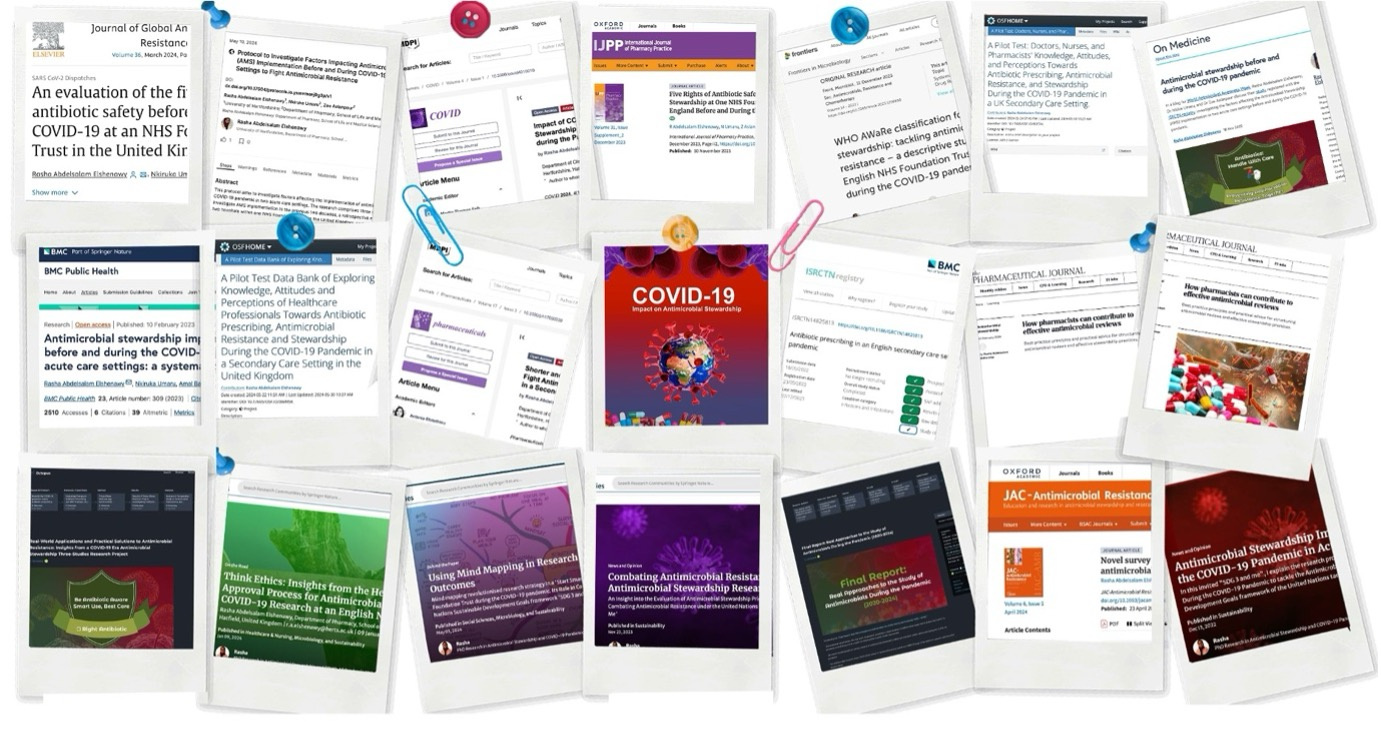From Research to Parliament: Turning Antimicrobial Resistance Evidence into Policy Impact
Published in Microbiology, Sustainability, and Pharmacy & Pharmacology

Our Journey: From Academic Research to Parliamentary Impact
Earlier this year, our written evidence on antimicrobial resistance (AMR) was published by the UK Parliament’s Health and Social Care Committee AMR Public Health Inquiry. This milestone highlighted the potential of academic research to shape policy when presented in the right format.
The Challenge: Bridging the Research–Policy Gap
Academic articles are rigorous but often inaccessible to policymakers. Parliamentarians need concise, timely, and actionable insights—quite different from traditional research outputs.
Reframing Research for MPs and Policymakers
With the support of the University of Hertfordshire’s Impact Team, we transformed our findings into an accessible and policy-relevant submission. This included:
-
Identifying key messages linked to UK policy priorities.
-
Simplifying language while maintaining scientific accuracy.
-
Framing antimicrobial stewardship as a health, economic, and security issue.
Making Research MP-Ready: Practical Approaches
-
Start with the ‘So What?’ – emphasise implications before methods.
-
Use a clear structure – executive summary, actionable recommendations, bullet points.
-
Highlight policy links – align evidence with government strategies, such as the UK AMR Action Plan.
-
Simplify without oversimplifying – make evidence readable but robust.
How Impact Teams Can Help Researchers
The Impact Team partnership taught us to:
-
Craft concise, narrative-driven outputs.
-
Develop recommendations tailored to MPs.
-
Connect research to broader parliamentary priorities.
Beyond the Submission: Sustained Engagement
Evidence submission is only the start. We are now:
-
Preparing follow-up briefings.
-
Exploring collaborations with All-Party Parliamentary Groups.
-
Planning outputs that strengthen long-term policy engagement.
Lessons Learned: Making Research Matter
Parliamentary committees rely on clear, actionable evidence. By reshaping our research into accessible insights, we contributed not only to one inquiry but also to the wider goal of evidence-informed policymaking.
What’s Next?
I hope this reflection encourages researchers to rethink how they communicate with Parliament. To achieve real policy impact, we must translate evidence into formats that decision-makers can readily use.
If you are interested in co-authoring guidance, sharing strategies, or collaborating on policy engagement, please connect.
Useful Links
- Read our written evidence – UK Parliament submission on AMR
- All submissions to the AMR inquiry
- UK Parliament Knowledge Exchange Unit (KEU) – Training, resources, and case studies for researchers
Selected Research Outputs

-
Impact of COVID-19 on ‘Start Smart, Then Focus’ antimicrobial stewardship in England
-
Cross-sectional study of pharmacists’ knowledge and attitudes on AMR post-COVID-19
- Novel survey distribution methods: impact on antimicrobial resistance research outcomes
(See my University of Hertfordshire profile, for a full list of publications.)
Visual & Communication Tools
-
Visual Abstract: Antimicrobial Stewardship Implementation During COVID-19
-
Storytelling in AMR Research: Communicating for Policy Impact
Follow the Topic
What are SDG Topics?
An introduction to Sustainable Development Goals (SDGs) Topics and their role in highlighting sustainable development research.
Continue reading announcement




Please sign in or register for FREE
If you are a registered user on Research Communities by Springer Nature, please sign in